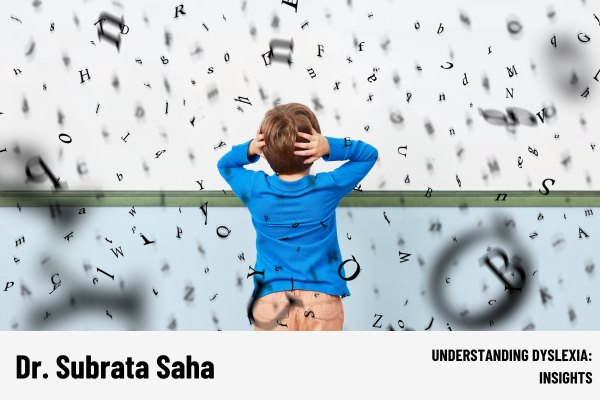Dyslexia is a common learning disorder that affects the ability to read, write, and spell. Dr. Subrata Saha, one of the best psychiatrists in Kolkata, provides valuable insights into the causes, symptoms, and effective treatments for dyslexia, helping individuals manage and overcome the challenges associated with this condition.
Causes of Dyslexia
Dyslexia is believed to be linked to genetic factors and differences in brain structure and function. Dr. Saha explains that it often runs in families, indicating a hereditary component. Other potential causes include prenatal or perinatal factors that affect brain development, such as low birth weight or exposure to toxins.
Recognizing Symptoms
Early identification of dyslexia is crucial for effective intervention. Common symptoms include difficulty recognizing letters and words, poor spelling, problems with reading comprehension, and slow reading speed. Dr. Saha notes that children with dyslexia may also struggle with writing, reversing letters, and understanding rhymes. These challenges persist despite normal intelligence and adequate educational opportunities.
Diagnosis and Treatment
Diagnosing dyslexia involves a comprehensive assessment by a specialist. Dr. Saha emphasizes the importance of early diagnosis to provide timely support. Treatment typically includes specialized educational interventions tailored to the individual’s needs. Multisensory instruction techniques, such as using visual, auditory, and kinesthetic methods, are highly effective. Additionally, assistive technologies, such as text-to-speech software, can help individuals with dyslexia improve their reading and writing skills.
Support and Management
Managing dyslexia requires a supportive environment both at home and school. Dr. Saha advocates for individualized education plans (IEPs) to ensure that students receive the necessary accommodations, such as extra time for tests and assignments. Encouraging self-esteem and resilience is also vital, as individuals with dyslexia often face emotional and psychological challenges due to their learning difficulties.
Conclusion
Dr. Subrata Saha’s expertise provides invaluable guidance for understanding and managing dyslexia. By recognizing the symptoms early, seeking appropriate diagnosis, and implementing tailored interventions, individuals with dyslexia can achieve their full potential. With the right support, they can overcome challenges and thrive academically and personally. Dr. Saha’s patient-centered approach ensures that individuals with dyslexia receive the comprehensive care and support they need to succeed.

